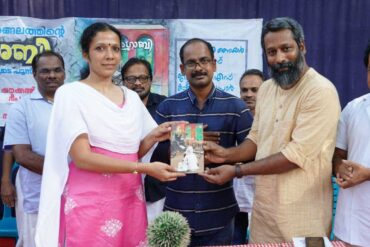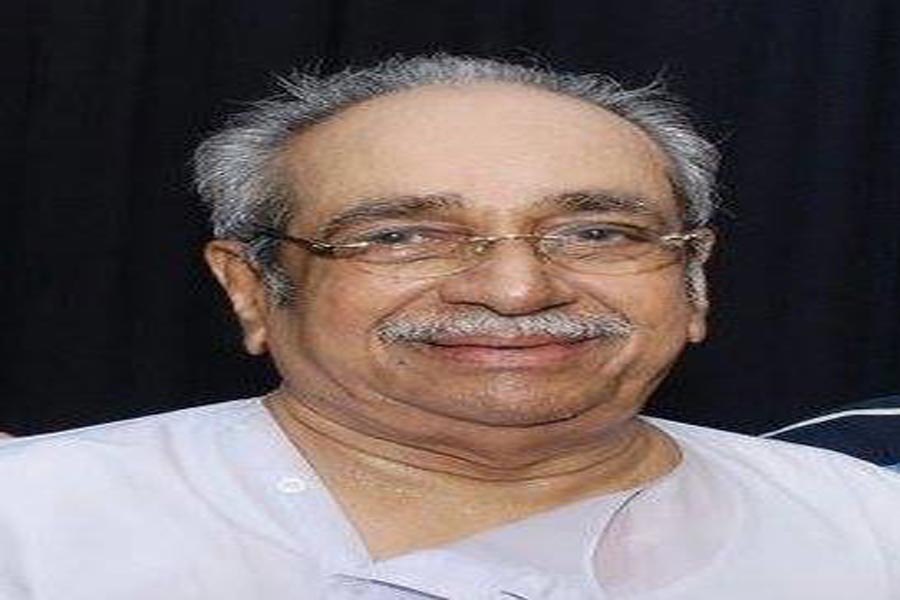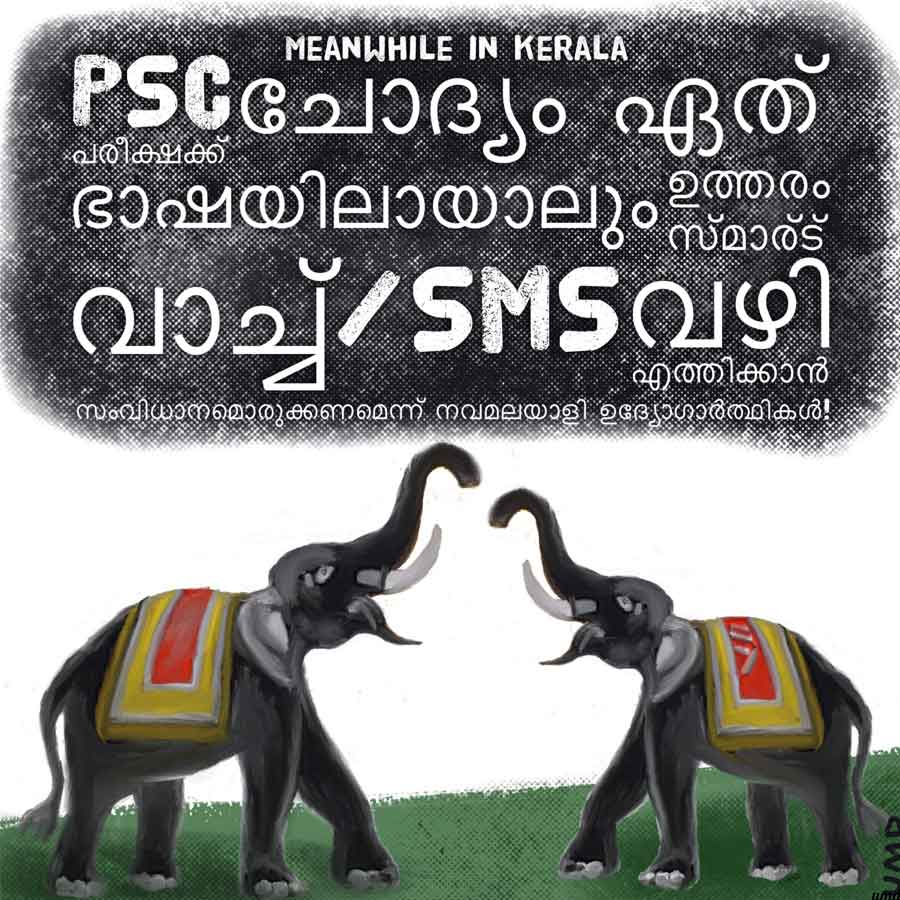“Give me the liberty to know, to utter, and to argue freely according to conscience, above all liberties” – Milton.
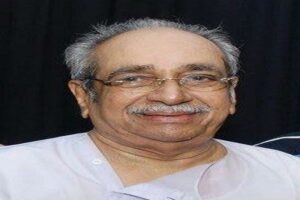
Vadakkut Viswanatha Menon, or V Viswanatha Menon as he was known, the multifaceted stalwart politician, is no more. Menon was a revolutionary student leader, an activist of the Communist party and the Trade Union, an exemplary Parliamentarian, a good administrator and more.
As he departs at the age of 92 after a decade away from public life, he needs to be remembered and cherished for his many valorous acts. As a high school student, Viswanatha Menon courted arrest for protesting the arrest of Jawaharlal Nehru by the British. Later, he was among the 11 daredevils who attacked Edappally Police station in 1950 to free their fellow Comrades.
Viswanatha Menon served as a Municipal Councilor, MLA, Rajya Sabha and Lok Sabha MP and as the state Finance Minister with five budgets to his name. More importantly, he was a great Trade Unionist who made stellar contributions as the leader of Left trade unions in the commercial hub of Kochi.
The contribution of V Viswanatha Menon to the Left movement and the state is remarkable. Menon was a serving member of the Rajya Sabha in Indian Parliament during the darkest period of Indian politics through the Emergency. It was Viswanatha Menon’s interventions in the Rajan case that turned the course of politics in Kerala after the lifting of the Emergency.
The Rajan case judgment became emblematic of the horrifying excesses of the Emergency in Kerala. It was this episode that opened the eyes of Malayalis to the horrors perpetrated under the guise of the emergency. But, the key role played by Viswanatha Menon as a Member of Parliament did not get the due recognition it deserved.
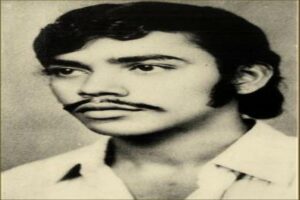
P Rajan, a final year student of Kozhikode Regional Engineering College (REC), who was arrested by the Kerala Police for alleged Naxal association, was asked to be handed over from police custody to judicial custody. The Division Bench of the High Court, consisting of Justice P Subramanian Potti and Justice V Khalid, pronounced the verdict while passing final orders on the habeas corpus petition filed by Rajan’s father, T V Eachara Warrier.
This landmark judgment was brought about by a letter sent by Viswanatha Menon as an MP to T V Eachara Warrier, enclosed within which was the then Home minister K Karunakaran’s reply to his letter seeking the release of Rajan. This letter of Karunakaran turned out to be proof of the government’s culpability in the disappearance of Rajan. Justice Subramanian Potti wrote thus:
“Sri. Viswanatha Menon has forwarded the petitioner (Eachara Warrier) with a copy of the intimation received by him from the Home Minister of Kerala that the release of Rajan was under consideration. It has turned out, during the course of the proceedings that the reference is to the letter dated 10th December 1976 written by the Minister for Home Affairs, Sri. K Karunakaran to Sri.Viswanatha Menon. Therein he acknowledges the receipt of a letter written by Viswanatha Menon to him enclosing an application praying that Sri Rajan, son of Sri Eachara Warrier, should be released from detention and duly informs Viswanatha Menon that the said matter was under consideration.”
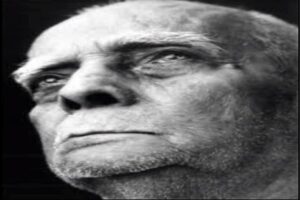
Eachara Warrier had written to the Members of Parliament from Kerala seeking help to release his son. Viswanatha Menon in turn wrote to the Prime Minister and the Union Home Minister. Ultimately, pursuant to the lifting of the Emergency and the notification ordering elections to the Lok Sabha, most of the political prisoners were released. When Rajan was still not produced, Eachara Warrier approached the Court through Senior Advocate S Eashwar Aiyer and K Ramkumar.
While describing the background of the case, The High Court noted in the judgment:
“But so long as it is the duty of this Court to protect the freedom of a citizen and his immunity from, illegal detention we cannot decline to exercise our jurisdiction merely because a dispute has arisen on the issue of the detention. In a habeas corpus petition where allegations are made that citizen of this country is in illegal custody it is the duty of the Court to safeguard the freedom of the citizen which has been guaranteed to him by our Constitution and to immediately take such action as would ensure that no person however high or low acts in contravention of the law or in a, high-handed, arbitrary or illegal manner.”
A lot of leaders who use the Rajan case to score political brownie points today do not know of the contribution of Viswanatha Menon to the judgment that turned Kerala politics upside down.
Viswanatha Menon served as the Finance Minister in the 1987 EK Nayanar-led Left Democratic Front Government. Menon utilized even this opportunity to ensure the full delivery of justice in the Rajan case. Eachara Warrier had filed a petition in the court seeking compensation for the custodial death of Rajan. After 14 long awaited years of Rajan’s death came the verdict ordering the State Government to pay Rs. 6,87000 as compensation to Rajan’s father. The order was to collect the money from the Police officers of the Kakkayam Camp who murdered Rajan using third degree torture. Viswanatha Menon ensured there were no bureaucratic red tapes and cleared this amount of compensation from the state treasury itself in his capacity as the state Finance Minister.
When Eachara Warrier decided to sponsor a critical care ward in Ernakulam General Hospital in Rajan’s memory with the compensation amount, it was Viswanatha Menon who laid its Foundation Stone and funded it partially from the state exchequer after the fund got exhausted.
Viswanatha Menon stands apart as a rare Communist leader who truly understood the role of being a people’s representative in Parliament and Legislative Assembly. He stood firmly for upholding democracy and human rights.
Only when I went to Delhi in the mid-Seventies as a reporter of the party organ (Deshabhimani) did I realize the democratic struggle Viswanatha Menon undertook as a Rajya Sabha member during the dark period of Emergency. The Rajya Sabha archives speak volumes of his rebellion against the blatant massacre of democracy and autocratic supremacy, withstanding the assault of the Treasury Benches and the biased rulings of the chair.
What is revolutionary parliamentarianism can be understood from the Rajya Sabha records of those days. Viswanatha Menon, Ambadi Vishwam to his friends, was among the few Marxists following in the footsteps of A K Gopalan (AKG), who exemplified the role of an MP that represented the working class.
Viswanatha Menon was first elected to the Parliament in 1967 from the Ernakulam Lok Sabha Constituency defeating Congress rival A M Thomas.
However, his defeat in the 2003 by-poll from Ernakulam Constituency, when he fought as an Independent, was a huge setback to him personally and a political setback to the Left. Back then, factionalism was at its peak in the CPI (M) and he had distanced himself from the CPI (M)—following his relegation to the district committee from the CPI (M) state committee. Viswanatha Menon’s candidature from Ernakulam was supported by the Bharatiya Janata Party (BJP). Although he was fielded by the CPI (M) splinter group in the district, headed by V B Cherian, he came to be known as the BJP-supported Independent candidate which would remain a stigma throughout his life. He realized his folly later and accepted his error of judgement.
As someone who knew him both politically and personally at close quarters, I can vouch that he was always on the side of justice and truth and fought for it with all sincerity and truthfulness. My due respects to the departed soul and condolences to his family members.
Translated by Sangita Harry; Edited by Anand Kochukudy

